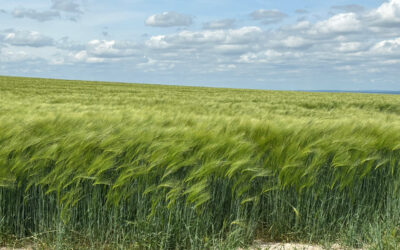That’s code for ‘let’s do all we can NOT to get bowel diseases which may then lead to bowel cancer”.
“Tell it like it is, …”
The advice given here has been scooped up from a range of reputable websites to help with the symptoms of (or help prevent the onset of), various bowel disorders such as IBD (inflammatory bowel disease) and IBS (Irritable bowel syndrome), Crohn’s disease, colitis, haemorrhoids, constipation, diverticulitis and ulcerative colitis. And of course, bowel cancer.
Bowel cancer is the fourth most common cancer worldwide apparently and has been hailed as a ‘westernised’ disease because it is linked to the lifestyle of the western world.
One in nine cases can be treated successfully providing it is caught early enough. Everyone’s experience of bowel cancer may be different, but it does appear that half of all bowel cancers diagnosed are linked to diet and lifestyle.
Therefore, improvements in the following may well help us to keep that area of our body ticking along nicely.
EXERCISE
Take more exercise. Like you haven’t heard that before. Exercise will feature on any health improvement programme so it’s pointless trying to ignore it. 30 minutes per day five times a week is the current Government guideline. Do that as an absolute minimum. It doesn’t have to be something you hate, which is hard work and which you dread. Walking, cycling, swimming – anything which lifts your spirits and which gets the blood pumping a little and your joints moving.
REDUCE STRESS
It appears from the research out there that stress plays a major part in the onset of bowel disorders. Take a good look at your daily life and pinpoint where you could make changes. Your job, your journey to work, your home life. Stress is at the bottom of many inflammatory and cardiovascular diseases and although a feature of modern life, we should do all we can to reduce it.
FOOD AND DRINK
What foods may contribute to bowel cancer.
It is thought that red meat and processed meat play a big part. The reasons for this are not known in detail. Red meat is lamb, pork, beef in any form. Processed meat is meat which has been cured or smoked with salt or chemicals (usually both). Bacon, all hams, chorizo, pepperoni, salamis, hot dogs, corned beef and some sausages.
If you were going to choose between the two then it is better to have a small quantity of unprocessed red meat than processed meat. That is the advice on the bowel cancer research website. They also recommend that an average adult should eat no more than 70g of red or processed meat a day. That’s about three thin slices.
Brace yourself, some stats coming up…
However, in the light of recent press coverage (April 2019) a new study found that even those sticking to 70g a day were at a 20% higher risk of developing bowel cancer, compared with those who ate, say 20g per day.
AND…
Processed meat only…if you eat an average of 29g per day you are at a 19% higher risk of than those who eat 5g per day (that’s not worth having so don’t bother).
Unprocessed red meat only … if you eat an average of 54g per day (one slice of roast beef) the risk is 15% higher than those who had 8g per day (again…why would you bother…have fish instead)
What to do?
If you love processed meat and / or red meat, and can’t do without it, then simply cut down and don’t have it so often. One small portion once a week.
If you don’t care about it, wouldn’t miss it, then leave it out of your diet.
ALCOHOL
“Please, no…”
It’s a toxin, come on, that can’t be a surprise. Of course it’s not going to do your body any good.
There is a proven link between drinking alcohol and bowel cancer (and many other cancers, come to that). A study of 500,000 people revealed that every two units of booze drunk per day, increased the lifetime risk of developing bowel cancer by 8%. Cheery, huh?
The government guidelines are 14 units per week for both men and women. If you regularly drink those 14 unites each week, then it’s best to spread them over three or more days. Binge drinking the entire 14 units in one day will increase risk of long-term illness. For more information visit https://www.drinkaware.co.uk/alcohol-facts/alcoholic-drinks-units/
GETTING MORE FIBRE IN YOUR DIET
Fibre (roughage) refers to the part of fruit, vegetables and grains that cannot be digested by your stomach. It’s an important part of the diet because it:
a) helps the muscles in your bowels work properly …they move the poo through the body.
b) adds bulks and softens poo by holding water and therefore can help relieve constipation.
c) promotes the growth of healthy bacteria in your bowels…which can help relieve piles.
There are two types of fibre – insoluble and soluble. We need both soluble (able to dissolve…broken down by the natural bacteria in your bowels, making stools softer and larger) and insoluble (does not dissolve). This type passes through unchanged but it does absorb water. This increases the size of your stool so it passed through your bowels quicker.
Fruit and veg usually contain a mix of both types of fibre. Aim also to swap white bread for wholegrain, corn based cereals for bran or oaty cereals and white rice / pasta for the brown variety. Swap also cakes for oatcakes and dried fruit.
Aim to eat a minimum of 5 (I always think 8-10) portions of fruit and veg every day to ensure your bowels have enough to do 🙂
These foods are very high in fibre: apples, beans, berries, broccoli, brussell sprouts, carrots, cauliflower, figs, green peas, oranges, pears, prunes.
Pulses and lentils are great sources of fibre with the added boost of protein too.
The recommended amount of fibre is 18g per day (look at your food labels). Work out the fibre of your favourite foods and make a list. One apple has 2g fibre. A pear has 3.5g. 100g broccoli has 2.5g. 50g oats has 5g. Keep counting…
TO SUMMARISE
More exercise, less beer, more apples and oats, less white bread, more fish, less red meat. And tons and tons more broccoli.
Annie
x
April 2019




